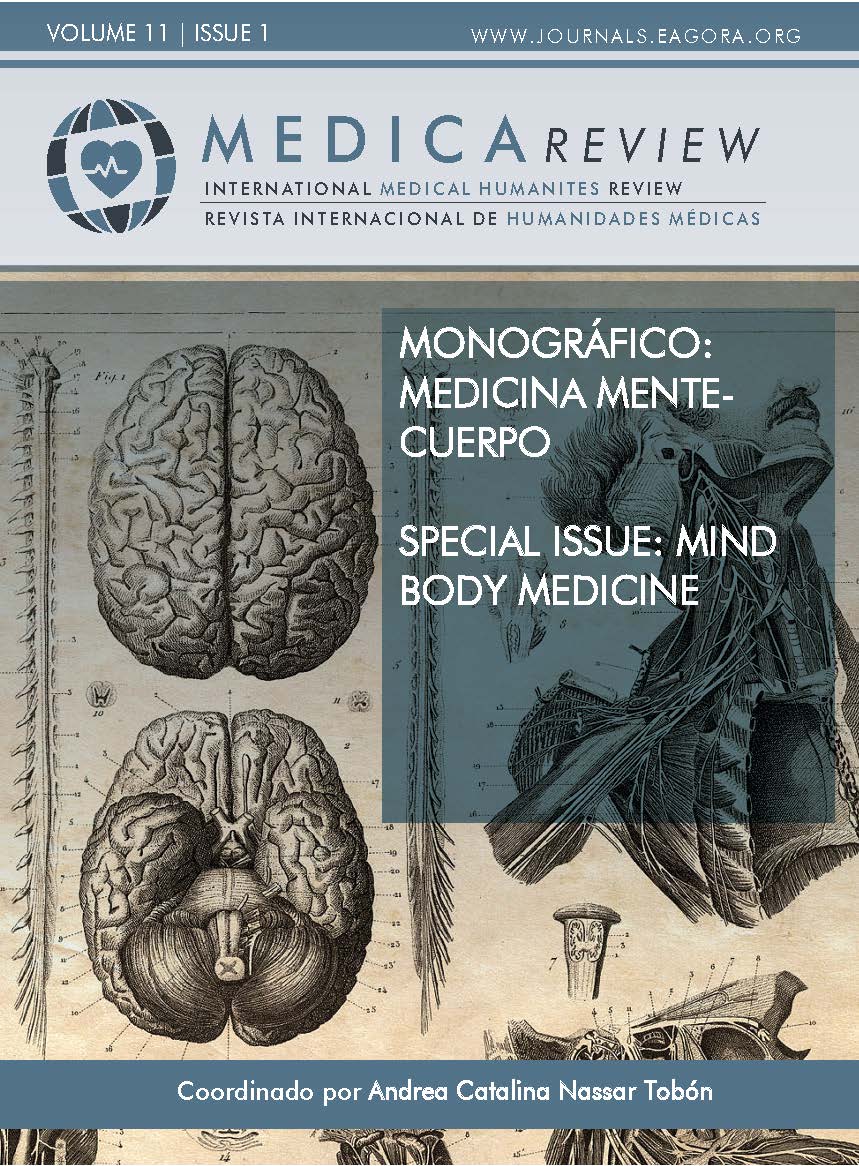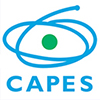Programa de reducción del estrés desde la medicina mente cuerpo
El modelo transteórico y la teoría sociocognitiva
DOI:
https://doi.org/10.37467/revmedica.v11.5150Palabras clave:
Modelo transteórico , Teoría sociocognitiva , Medicina mente cuerpo, Estrés, Carga alostáticaResumen
Este texto reflexiona sobre las consecuencias nocivas del estrés crónico y propone un programa de reducción de estrés basado en técnicas de relajación. Se fundamenta en la medicina mente cuerpo, el modelo transteórico y la teoría sociocognitiva, porque ofrecen un enfoque integral para fomentar hábitos de relajación y el bienestar físico. El programa consta de ocho sesiones semanales de 60 minutos con ejercicios, con el objetivo de reducir la carga alostática. La efectividad se evalúa con la Escala de Percepción del Estrés. Aunque aún no hay resultados empíricos, se busca promover la salud, prevenir enfermedades y mejorar la calidad de vida.
Estadísticas globales ℹ️
|
342
Visualizaciones
|
302
Descargas
|
|
644
Total
|
|
Citas
Astin, J. A., Shapiro, S. L., Eisenberg, D. M., & Forys, K. L. (2003). Mind-body medicine: State of the science, implications for practice. The Journal of the American Board of Family Practice, 16(2), 131–147. https://doi.org/10.3122/jabfm.16.2.131
Bandura, A. (1971). Social Learning Theory. General Learning Press.
Bandura, A. (2001). Social cognitive theory: An agentic perspective. Annual Review of Psychology, 52, 1–26. https://doi.org/10.1146/annurev.psych.52.1.1
Barrows, K. A., & Jacobs, B. P. (2002). Mind-body medicine. An introduction and review of the literature. The Medical Clinics of North America, 86(1), 11–31. https://doi.org/10.1016/s0025-7125(03)00069-5
Berra Ruiz, E., & Muñoz Maldonado, S. I. (2018). El modelo transteórico aplicado al cambio de conductas relacionadas con la reducción del peso corporal. Revista digital internacional de psicología y ciencia social, 4(2), 153–170.
Bhasin, M. K., Dusek, J. A., Chang, B.-H., Joseph, M. G., Denninger, J. W., Fricchione, G. L., Benson, H., & Libermann, T. A. (2013). Relaxation Response Induces Temporal Transcriptome Changes in Energy Metabolism, Insulin Secretion and Inflammatory Pathways. PLOS ONE, 8(5), e62817. https://doi.org/10.1371/journal.pone.0062817
Caballo, V. (1991). Manual de técnicas de terapia y modificación de conducta / Handbook of techniques of behavior therapy and modification. Siglo XXI.
Chrousos, G. P., & Gold, P. W. (1992). The concepts of stress and stress system disorders. Overview of physical and behavioral homeostasis. JAMA, 267(9), 1244–1252.
Coburn, E. (2014). Meditation in psychotherapy. Harvard Health. https://www.health.harvard.edu/newsletter_article/Meditation_in_psychotherapy
Cummings, N. A., & Follette, W. T. (2016). Psychiatric Services and Medical Utilization in a Prepaid Health Plan Setting II. En Psyche’s Prophet. Routledge.
Dusek, J. A., & Benson, H. (2009). Mind-body medicine: A model of the comparative clinical impact of the acute stress and relaxation responses. Minnesota Medicine, 92(5), 47–50.
Epel, E., Daubenmier, J., Moskowitz, J. T., Folkman, S., & Blackburn, E. (2009). Can meditation slow rate of cellular aging? Cognitive stress, mindfulness, and telomeres. Annals of the New York Academy of Sciences, 1172, 34–53. https://doi.org/10.1111/j.1749- 6632.2009.04414.x
Fonte, J. D., & Cruzado, J. A. (2021). El Modelo Transteórico y el Ejercicio en Supervivientes de Cáncer de Mama. Clínica y Salud, 32(3), 129–137.
Gilmartin, H., Goyal, A., Hamati, M. C., Mann, J., Saint, S., & Chopra, V. (2017). Brief Mindfulness Practices for Healthcare Providers—A Systematic Literature Review. The American Journal of Medicine, 130(10), 1219.e1-1219.e17. https://doi.org/10.1016/j.amjmed.2017.05.041
Hussain, D., & Bhushan, B. (2010). Psychology of meditation and health: Present status and future directions. International Journal of Psychology & Psychological Therapy, 10, 439–451.
Jacobson, E. (1938). Progressive relaxation: A physiological and clinical investigation of muscular states and their significance in psychology and medical practice. University of Chicago Press.
Jeter, P. E., Slutsky, J., Singh, N., & Khalsa, S. B. S. (2015). Yoga as a Therapeutic Intervention: A Bibliometric Analysis of Published Research Studies from 1967 to 2013. Journal of Alternative and Complementary Medicine, 21(10), 586–592. https://doi.org/10.1089/acm.2015.0057
Khakha, D. C., Satapathy, S., & Dey, A. B. (2015). Impact of Jacobson progressive muscle relaxation (JPMR) and deep breathing exercises on anxiety, psychological distress and quality of sleep of hospitalized older adults. Journal of Psychosocial Research, 10(2), 211.
López-Gonzalez, L. (2013). El Programa TREVA (técnicas de Relajación Vivencial Aplicadas al Aula): Aplicaciones, eficacia y acciones formativas. ISEP Science, 4, 35–46.
Luna Rodríguez Bueno, A. G., & García y Barragán, L. (2014). El Modelo Transteórico y adherencia terapéutica en adolescentes con Diabetes Mellitus Tipo I. Revista iberoamericana de psicología, 7(1), 49–58. https://doi.org/10.33881/2027-1786.rip.7105
McEwen, B. S., & Seeman, T. (1999). Protective and damaging effects of mediators of stress. Elaborating and testing the concepts of allostasis and allostatic load. Annals of the New York Academy of Sciences, 896, 30–47. https://doi.org/10.1111/j.1749- 6632.1999.tb08103.x
Ministerio de la Protección Social. (2010). Batería de instrumentos para la evaluación de factores de riesgo psicosocial (Ministerio de la Protección Social).
Ormrod, J. E. (2004). Human learning (4th ed). Merrill.
Park, S.-H., & Han, K. S. (2017). Blood Pressure Response to Meditation and Yoga: A Systematic Review and Meta-Analysis. Journal of Alternative and Complementary Medicine (New York, N.Y.), 23(9), 685–695. https://doi.org/10.1089/acm.2016.0234
Pifarré, P., Simó, M., Gispert, J.-D., Plaza, P., Fernández, A., & Pujol, J. (2015). Diazepam and Jacobson’s progressive relaxation show similar attenuating short-term effects on stress- related brain glucose consumption. European Psychiatry: The Journal of the Association of European Psychiatrists, 30(2), 187–192. https://doi.org/10.1016/j.eurpsy.2014.03.002
Reigal, R., & Videra, A. (2011). Efectos de la técnica de relajación de Schultz en el control de las pulsaciones tras un esfuerzo aeróbico. Lecturas: Educación Física y Deportes. Revista Digital, 16(160).
Rodríguez, A. M. P., & Abaunza, A. F. C. (2021). El rol de la familia en la rehabilitación de adicciones desde el Modelo Transteórico e Intervenciones Cognitivo-Conductuales. Informes Psicológicos, 21(1),. https://doi.org/10.18566/infpsic.v21n1a010
Seeman, T. E., Singer, B. H., Rowe, J. W., Horwitz, R. I., & McEwen, B. S. (1997). Price of adaptation—Allostatic load and its health consequences. MacArthur studies of successful aging. Archives of Internal Medicine, 157(19), 2259–2268.
Tejada, A. (2005). Agenciación humana en la teoría cognitivo social: Definición y posibilidades de aplicación. Pensamiento Psicológico, 1, 117–123.
Tuah, N., Amiel, C., Qureshi, S., Car, J., Kaur, B., & Majeed, A. (2012). Modelo transteórico de modificación dietética y ejercicio físico para la pérdida de peso en adultos con sobrepeso y obesos. Revista Médica Clínica Las Condes, 23(2), 201–202. https://doi.org/10.1016/S0716-8640(12)70299-7
Wahbeh, H., Elsas, S.-M., & Oken, B. S. (2008). Mind-body interventions: Applications in neurology. Neurology, 70(24), 2321–2328. https://doi.org/10.1212/01.wnl.0000314667.16386.5e
Wolff, M., Memon, A. A., Chalmers, J. P., Sundquist, K., & Midlöv, P. (2015). Yoga’s effect on inflammatory biomarkers and metabolic risk factors in a high risk population—A controlled trial in primary care. BMC Cardiovascular Disorders, 15, 91. https://doi.org/10.1186/s12872-015-0086-1
Descargas
Publicado
Cómo citar
Número
Sección
Licencia
Aquellos autores/as que publiquen en esta revista, aceptan los términos siguientes:
- Los autores/as conservarán los derechos morales sobre la obra y cederán a la revista los derechos comerciales.
- Transcurrido un año desde su publicación, la versión del editor pasará a estar en acceso abierto en la web de la editorial, pero la revista mantendrá el copyright de la obra.
- En el caso de que los autores deseen asignar una licencia abierta Creative Commons (CC), podrán solicitarla escribiendo a administracion@edulab.es









